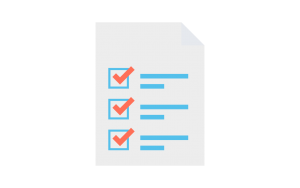Within the Assess Plus project, content development is ongoing across all partners. As INQS is developing content for O1 – around national skills accreditation in Ireland, we thought that we would share some of the developed content which is aimed at supporting skills accreditation practitioners:
Ireland’s National Career Guidance website (https://careersportal.ie/) provides an online self-assessment tool designed to help users identify relevant career paths and/ or education courses (https://careersportal.ie/members/auth/files/members_welcome.php). This process involves a 3-stage set of tasks, designed to first audit the individual according to Career Sectors, Interest Profiler, Personality, Career Skills. This allows the individual to identify broad career areas of interest (and to access information on same), to view and respond to a series of online hypothetical situations and simulations and identify preferences (e.g. “would 5 you prefer to Build something with wood or metal or Sort out your books or music so they are easy to find?”) an online, to undertake a personality test (similar to a myers-briggs approach) and to access information about “Careers skills''. When the user has completed these initial activities, they can then access additional information and supports designed to help them identify jobs in demand, get information about particular career profiles, develop job-seeking skills, etc. Further to this, a free eight page Career Report – containing job and course matching information can be generated and printed from the website. Some Education and Training Boards (ETBs) – regional bodies responsible for providing training to primarily low-skilled and early school-leavers or those looking for alternative education – provide career assessment and skill audit functions through their website. These are designed to help unemployed people or people at risk of unemployment where through a systematic process of assessment with a view to how and where an individual’s skills and knowledge can be formally recognised and accredited. One such ETB has initiated a process of evaluating individual’s competences and validating these through appropriate certification. Individuals were evaluated according to the knowledge, skills and competences they had gained through informal and non-formal learning. This was then accredited through recognition of prior learning (RPL) with a view to supporting these individuals' progression to further learning or employment. This process included oral interviews, skills’ identification questionnaires, task completion, employer verification, verification from the community sector, discussions and also learner reflection. This process was captured as part of a CEDEFOP 2016 national report on Ireland (“update to the European inventory on validation of non-formal and informal learning”, 2016).
For more on the Assess Plus project, please see http://www.assess-plus.eu
